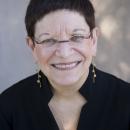-
Wednesday, Sep 25, 2024
2:10 PM (127 mins)
Get Tickets
BAMPFA
Cecil B. DeMille & Lois Weber: Silent Cinema Pioneers
-
 Introduction
IntroductionAnne Nesbet is a Professor of Slavic Languages and Literatures and Film & Media at UC Berkeley.
-
 On Piano
On Piano
Double Feature
The Cheat
Cecil B. DeMille, United States, 1915
FEATURING
Fannie Ward
Jack Dean
Sessue Hayakawa
James Neill
One of the most visually elegant silent films ever made, Cecil B. DeMille’s The Cheat was initially banned in several states due to its shocking subject matter. A society lady (Fannie Ward) gambles away Red Cross funds and borrows from a wealthy Japanese man (Sessue Hayakawa) on the implied promise of becoming his mistress. The Cheat set standards of acting, decor, frame composition, and lighting that were not surpassed for years, even by DeMille. But it is, above all, the first modern film in terms of its sexually charged content.
FILM DETAILS
Screenwriter
- Hector Turnbull
- Jeanie Macpherson
Cinematographer
- Alvin Wyckoff
Print Info
- B&W
- DCP
- Silent
- 62 mins
source
- Lobster Films
Where Are My Children?
(Where Are My Children?)
Lois Weber, Phillips Smalley, United States, 1916
FEATURING
Tyrone Power Sr.
Helen Riaume
Juan de la Cruz
Rena Rogers
Throughout the silent period, Lois Weber, a social worker turned film director, produced brilliant but controversial “missionary pictures” in which anti-Semitism, opium smuggling, capital punishment, and alcoholism were addressed with candor and dramatic prowess. Where Are My Children?, codirected with her husband, Phillips Smalley, manages a curious balance, defending birth control while condemning abortion. The film focuses on a district attorney with an interest in eugenics as a curative for social ills. Please note that no complete prints of this film exist.
FILM DETAILS
Screenwriter
- Lois Weber
Based On
a story by Lucy Payton, Franklyn Hall
Cinematographer
- Allen Siegler
- Stephen S. Norton
Print Info
- B&W/Tinted
- DCP
- Silent
- 65 mins
permission
- Kino Lorber
source
- Library of Congress
Event Accessibility
If you have any questions about accessibility or require accommodations to participate in this event, please contact us at bampfa@berkeley.edu or call us at (510) 642-1412 (during open hours) with as much advance notice as possible. More information on accessibility services.

 Where Are My Children?
Where Are My Children?

